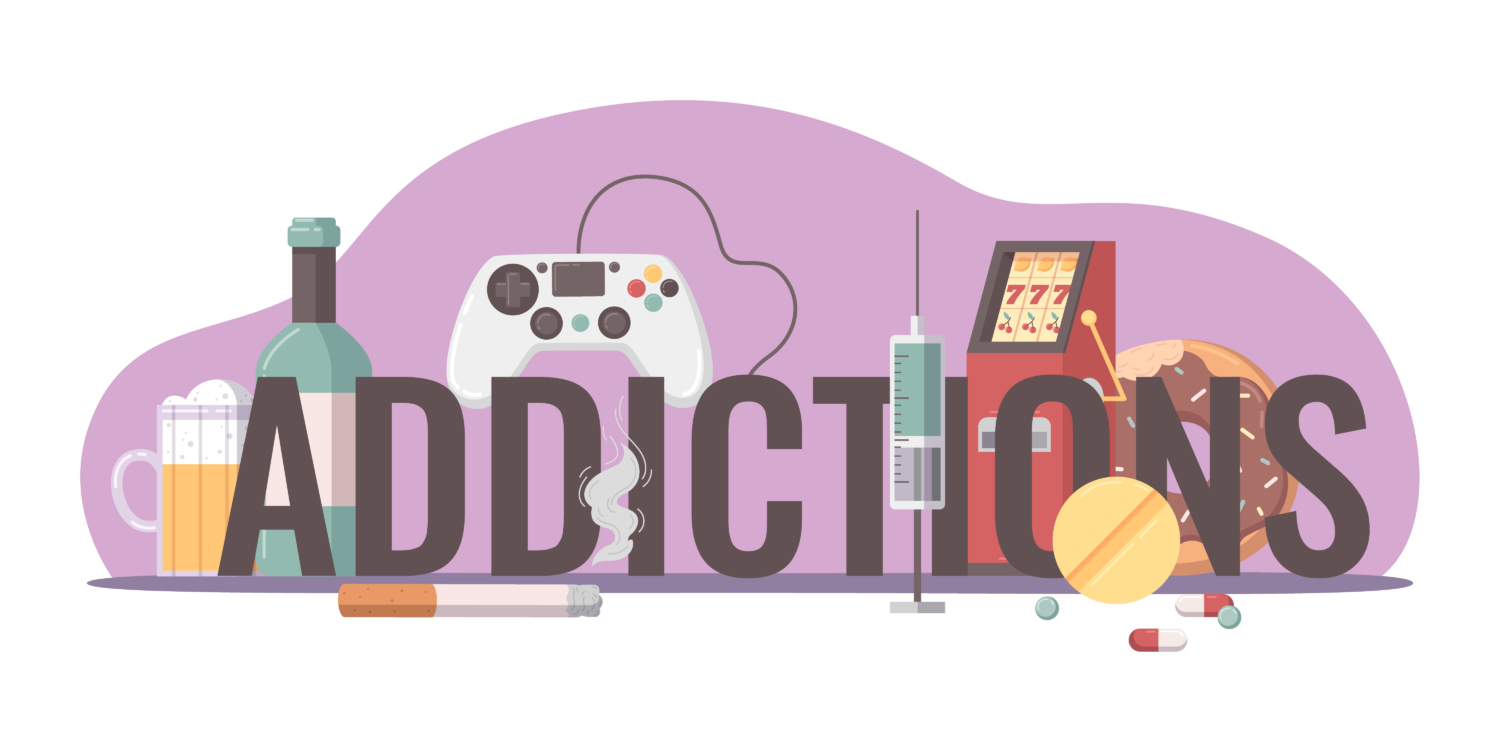Substance abuse is a complex and pervasive issue that affects not just individuals but also their relationships and families. When both partners in a couple struggle with addiction, the challenges multiply, making it essential to approach treatment with a comprehensive and coordinated strategy. Couples substance abuse treatment at specialized facilities, such as Couples rehab, offers a unique and effective approach to recovery, focusing on the intricate dynamics of romantic relationships marred by addiction.
The goal of couples substance abuse treatment is twofold: to support each partner in their individual recovery journey and to strengthen the relationship by fostering mutual understanding, communication, and trust. This holistic approach ensures that both partners are equipped with the tools and coping mechanisms needed to maintain sobriety and rebuild their lives together.
In this article, we will delve into the various methods employed in couples substance abuse treatment, highlighting the importance of tailored interventions that address both individual and relational aspects of addiction. From initial assessments and detoxification processes to therapeutic interventions, each step is crucial in ensuring a successful recovery for both partners. By understanding these methods, couples can make informed decisions about their treatment options and embark on a path toward a healthier, substance-free future.
Couples Rehab Services
Assessment and Evaluation
Assessment and evaluation are critical first steps in the journey toward recovery for couples struggling with substance abuse. This phase involves a comprehensive approach to understand the unique challenges and dynamics within the relationship, as well as the individual needs of each partner. Effective assessment and evaluation set the foundation for a tailored treatment plan that addresses both individual and collective issues.
Initial Screening
The initial screening is designed to identify the presence and extent of substance abuse within the couple. This step involves a series of standardized questionnaires and interviews that help to ascertain the types and frequencies of substances used. During this phase, healthcare professionals gather essential information about each partner’s substance use history, including any previous attempts at quitting or treatment, as well as any co-occurring mental health disorders. The goal of the initial screening is to quickly identify the severity of the situation and determine the most immediate needs for both partners.
Individual Assessments
Following the initial screening, individual assessments delve deeper into each partner’s personal history and current state. These assessments often include physical examinations, psychological evaluations, and detailed discussions about each individual’s background, including family history, trauma, and other factors that may contribute to substance abuse. Individual assessments also aim to identify any co-existing conditions, such as anxiety, depression, or other mental health issues, that may require concurrent treatment. Understanding these personal aspects is crucial for developing a customized treatment plan that addresses not just the substance abuse, but also the underlying issues that may be fueling it.
Couple’s Dynamic Evaluation
The couple’s dynamic evaluation focuses on the interactions and relationship patterns that may influence or be influenced by substance abuse. This part of the assessment examines how the partners communicate, resolve conflicts, and support each other. Therapists look for unhealthy patterns such as codependency, enabling behaviors, or destructive communication styles that may need to be addressed during treatment. By understanding the relational dynamics, therapists can better tailor interventions to not only help each partner individually but also strengthen the relationship as a whole. This holistic approach ensures that both partners are working together towards sobriety, creating a supportive environment that fosters long-term recovery.
In conclusion, the assessment and evaluation phase is a multi-faceted process that lays the groundwork for effective treatment. By thoroughly understanding both individual and relational aspects of substance abuse, healthcare professionals can create a comprehensive and personalized treatment plan, setting the stage for successful recovery.
Detoxification Process
Detoxification is a critical first step in the journey to recovery for couples struggling with substance abuse. This stage involves the removal of harmful substances from the body and is essential for preparing individuals for the subsequent phases of treatment. The detoxification process at couples rehab is multifaceted, encompassing medical supervision, emotional support, and specialized programs designed for couples.
Medical Supervision
Medical supervision during detoxification ensures that the process is safe and as comfortable as possible. Withdrawal symptoms can vary in severity, depending on the substance used and the duration of abuse. In a couples rehab setting, medical professionals closely monitor both partners to manage these symptoms effectively. They may administer medications to alleviate discomfort and prevent complications. The presence of healthcare providers around the clock provides a safety net, reducing the risk of medical emergencies and ensuring that both individuals receive the care they need.
Emotional Support
Detoxification is not only physically challenging but also emotionally taxing. The emotional support provided during this phase is crucial for helping couples navigate the difficulties of withdrawal. Therapists and counselors are available to offer guidance and reassurance, addressing the anxieties and fears that often accompany detox. Additionally, the mutual support between partners can be a powerful motivator. Couples are encouraged to lean on each other, fostering a sense of solidarity and shared purpose. This emotional backing helps to strengthen their commitment to the recovery process.
Couple’s Detox Programs
Couple’s detox programs are specifically designed to address the unique needs of partners undergoing detoxification together. These programs recognize that the dynamics of a relationship can significantly influence the detox experience. Joint detox sessions allow couples to support each other, enhancing their emotional connection and fostering a sense of teamwork. While individualized care is essential, shared experiences during detox can lay a strong foundation for the collaborative efforts needed in later stages of treatment. Couples detox programs often incorporate activities that promote healthy communication and mutual support, preparing partners for the relational challenges they may face during recovery.
In summary, the detoxification process in a couples rehab setting is comprehensive, involving medical supervision, emotional support, and specialized programs tailored for couples. This multifaceted approach ensures that both partners are adequately prepared for the subsequent phases of their recovery journey, setting the stage for successful long-term outcomes.

Therapeutic Interventions
Therapeutic interventions are crucial in the journey of recovery for couples dealing with substance abuse. These interventions are designed to address both individual and relational issues, ensuring that each partner’s unique needs are met while also fostering a healthier, more supportive relationship dynamic. This section explores the three primary forms of therapeutic interventions employed in couples rehab: individual therapy, couples counseling, and group therapy.
Individual Therapy
Individual therapy is a cornerstone of substance abuse treatment for couples. Each partner participates in one-on-one sessions with a licensed therapist, focusing on personal issues that contribute to substance use. These sessions allow individuals to explore underlying psychological, emotional, and behavioral issues in a private and safe environment. Therapists employ various modalities, such as Cognitive Behavioral Therapy (CBT), Motivational Interviewing (MI), and Dialectical Behavior Therapy (DBT), to help clients develop coping strategies, enhance self-awareness, and build healthier habits. The goal of individual therapy is to empower each partner to achieve personal recovery, which in turn supports the collective healing of the couple.
Couples Counseling
Couples counseling is specifically designed to address the relational aspects of substance abuse. This form of therapy focuses on improving communication, rebuilding trust, and resolving conflicts that may have arisen due to substance use. Therapists work with both partners to identify dysfunctional patterns and develop healthier ways of interacting. Techniques such as Emotionally Focused Therapy (EFT) and Behavioral Couples Therapy (BCT) are often utilized to strengthen the emotional bond between partners, enhance mutual understanding, and promote a collaborative approach to recovery. By working together in therapy, couples can learn to support each other’s sobriety and create a more resilient and loving relationship.
Group Therapy
Group therapy provides a communal environment where couples can interact with others who are facing similar challenges. These sessions offer a unique opportunity for shared experiences, mutual support, and collective learning. Group therapy fosters a sense of community and belonging, which can be incredibly motivating and reassuring for couples in recovery. In these sessions, couples can share their stories, gain insights from others, and learn various coping strategies. Group therapy often incorporates elements of psychoeducation, skills training, and peer support to help participants build a robust support network. The collective dynamic of group therapy not only aids in individual recovery but also reinforces the couple’s commitment to a shared path of sobriety.
In conclusion, therapeutic interventions in couples rehab are multifaceted and tailored to address both individual and relational needs. By integrating individual therapy, couples counseling, and group therapy, treatment programs provide a comprehensive approach to recovery. This holistic strategy ensures that both partners receive the support and tools necessary to overcome substance abuse and build a healthier, more fulfilling life together.
Supportive Treatments
Supportive treatments play a vital role in the comprehensive recovery process for couples dealing with substance abuse. These treatments complement the primary therapeutic interventions and provide additional layers of support to ensure holistic healing and long-term success. This section explores the four key supportive treatments in couples rehab: group therapy, family therapy, holistic therapies, and relapse prevention planning.
Group Therapy
Group therapy offers a communal environment where couples can interact with others facing similar challenges. This shared experience fosters mutual support, understanding, and encouragement. The benefits of group therapy include:
- Shared Experiences: Couples can relate to others in similar situations, reducing feelings of isolation and fostering a sense of community. Sharing stories and challenges helps individuals realize they are not alone in their struggles.
- Skill Development: Group therapy sessions often focus on developing practical skills for managing addiction and improving relationships. These can include communication techniques, coping strategies, and problem-solving skills.
- Feedback and Accountability: Participants can offer and receive constructive feedback, which can help them reflect on their behaviors and progress. This accountability can motivate couples to stay committed to their recovery journey.
- Diverse Perspectives: Hearing different perspectives can provide new insights and coping strategies that couples might not have considered. This diversity of experiences can be invaluable in fostering personal and relational growth.
Family Therapy
Family therapy involves the couple’s extended family in the treatment process. This approach recognizes that substance abuse affects not just the individuals struggling with addiction but also their families. The benefits of family therapy include:
- Addressing Family Dynamics: Understanding and addressing the family dynamics that contribute to or result from substance abuse can help in creating a healthier home environment. This may involve resolving conflicts, improving communication, and setting healthy boundaries.
- Educating Family Members: Educating family members about addiction, recovery, and how they can support their loved ones can enhance the overall recovery process. Informed family members can provide better emotional support and avoid enabling behaviors.
- Healing Relationships: Substance abuse often strains family relationships. Family therapy provides a platform for healing these relationships through guided discussions and therapeutic interventions. It helps in rebuilding trust and fostering healthier interactions.
- Creating a Support System: Engaging the family in therapy ensures that the recovering couple has a strong support system. This support system can play a crucial role in preventing relapse and maintaining long-term sobriety.
Holistic Therapies
Holistic therapies focus on treating the whole person—mind, body, and spirit. These therapies are designed to complement traditional treatments and provide additional tools for managing stress, emotions, and overall well-being. Common holistic therapies in couples rehab include:
- Mindfulness and Meditation: These practices help individuals develop greater self-awareness, reduce stress, and enhance emotional regulation. Mindfulness can improve the couple’s ability to stay present and connected during recovery.
- Yoga and Exercise: Physical activities like yoga and exercise promote physical health, reduce stress, and improve mood. They also provide a constructive way to manage cravings and negative emotions.
- Art and Music Therapy: Creative therapies like art and music therapy offer alternative ways to express emotions and process experiences. These therapies can be particularly beneficial for individuals who find it challenging to articulate their feelings verbally.
- Nutritional Counseling: Proper nutrition is essential for physical health and recovery. Nutritional counseling can help individuals understand the importance of a balanced diet and make healthier food choices.
Relapse Prevention Planning
Relapse prevention planning is a crucial component of long-term recovery. This involves developing strategies and tools to prevent relapse and maintain sobriety. Key elements of relapse prevention planning include:
- Identifying Triggers: Understanding the triggers that lead to substance use is the first step in preventing relapse. Couples work with therapists to identify these triggers and develop coping strategies to manage them.
- Developing Coping Strategies: Effective coping strategies are essential for managing stress, cravings, and emotional challenges. These strategies can include mindfulness techniques, physical activities, and healthy hobbies.
- Creating a Support Network: Having a strong support network is vital for long-term sobriety. This network can include family, friends, support groups, and therapists. Couples are encouraged to build and maintain connections with supportive individuals.
- Regular Follow-Ups: Regular follow-up sessions with therapists or counselors ensure that couples stay on track with their recovery goals. These sessions provide an opportunity to address any challenges and adjust the relapse prevention plan as needed.
In summary, supportive treatments in couples rehab encompass a range of therapeutic approaches that enhance the overall recovery process. By incorporating group therapy, family therapy, holistic therapies, and relapse prevention planning, couples rehab programs provide a comprehensive and holistic approach to recovery. These supportive treatments ensure that both partners receive the additional care and resources they need to achieve and maintain long-term sobriety.
Find Couples Substance Abuse Treatment Near You
The journey through couples substance abuse treatment is multifaceted and requires a comprehensive approach tailored to the unique dynamics of each relationship. From the initial assessment and evaluation, which provides a detailed understanding of individual and relational factors, to the detoxification process, where medical supervision and emotional support are crucial, each step is designed to address the complexities of addiction within a partnership.
Therapeutic interventions play a pivotal role in the recovery process, offering a blend of individual therapy, couples counseling, and group therapy to foster personal growth and strengthen the relationship. Supportive treatments, including group therapy, family therapy, holistic therapies, and relapse prevention planning, provide additional layers of care to ensure holistic healing and long-term success.
Ultimately, successful couples substance abuse treatment hinges on a commitment to ongoing support and adaptation. With a dedicated approach that integrates medical, emotional, and relational care, couples can navigate the challenges of recovery together, emerging stronger and more resilient in their journey toward a healthier, substance-free life. For more information or to discuss treatment options, reach out to us today.
FAQs
1. What are the different Methods of Couples Substance Abuse Treatment offered at Couples Rehab?
Answer: Couples Rehab provides a comprehensive approach combining various methods to address both individual and relationship needs. These methods include:
- Individual therapy: Focused on each partner’s unique struggles with addiction and underlying mental health issues.
- Couples therapy: Guided sessions to improve communication, rebuild trust, and develop healthy relationship dynamics.
- Group therapy: Participating in support groups with other couples facing similar challenges fosters a sense of community and shared understanding.
- Behavioral therapy: Learning new coping mechanisms, identifying triggers, and developing relapse prevention strategies together.
- Family therapy (optional): In some cases, involving family members in the healing process can be beneficial.
2. How do these Methods of Couples Substance Abuse Treatment work together?
Answer: Couples Rehab creates a holistic treatment plan. Individual therapy provides a safe space to address personal issues, while couples therapy focuses on your relationship dynamic. Group sessions offer peer support and shared experiences, and behavioral therapy equips you with tools to maintain sobriety as a couple.
3. Is Couples Rehab’s approach to Methods of Couples Substance Abuse Treatment different from traditional couples therapy?
Answer: Yes. While traditional couples therapy focuses on general relationship issues, Couples Rehab tailors treatment specifically for couples battling addiction. We address the unique challenges addiction presents in a relationship and equip you with skills to navigate recovery together.
4. What are the benefits of using these Methods of Couples Substance Abuse Treatment?
Answer: Couples Rehab’s methods offer several advantages:
- Stronger support system: You and your partner learn to support each other’s recovery journey, fostering accountability and motivation.
- Improved communication: Couples therapy helps address underlying resentments and develop effective communication skills.
- Relapse prevention: Working together, you identify triggers specific to your relationship and develop strategies to avoid relapse.
- Rebuilding a healthy relationship: Through therapy, you can rebuild trust, heal past hurts, and create a foundation for a healthier future.
5. Can these Methods of Couples Substance Abuse Treatment work even if only one partner wants to participate?
Answer: While participation from both partners is ideal, Couples Rehab can still help. Individual therapy and support groups for partners of addicts can provide valuable tools and resources. Additionally, a supportive partner can learn how to best support their loved one’s recovery journey.
6. Are these Methods of Couples Substance Abuse Treatment effective for couples struggling with different substances?
Answer: Absolutely! Couples Rehab tailors the treatment plan to your specific needs, regardless of the substances involved. Our experienced therapists can address challenges related to alcohol abuse, opioid dependence, prescription drug addiction, and more.
7. How long do these Methods of Couples Substance Abuse Treatment typically last?
Answer: The duration varies depending on your needs. Couples Rehab offers flexible treatment programs, from intensive short-term options to longer-term programs for in-depth recovery.
8. What happens after completing Couples Rehab’s Methods of Couples Substance Abuse Treatment program?
Answer: Couples Rehab prioritizes long-term success. We offer aftercare programs and alumni support groups to provide ongoing support, relapse prevention strategies, and the chance to connect with other couples on their recovery journey.
9. Is couples treatment more expensive than individual substance abuse treatment?
Answer: The cost can vary depending on the program chosen. Couples Rehab works with most major insurance providers and may offer bundled pricing for couples treatment, making it potentially cost-effective compared to separate individual programs.
10. How can couples struggling with substance abuse learn more about the Methods of Couples Substance Abuse Treatment at Couples Rehab?
Answer: Contact Couples Rehab today! Our admissions team can answer your questions, assess your needs, and connect you with the most effective treatment plan to support your recovery journey as a couple.







